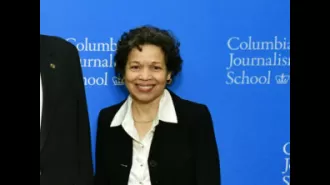New limit on Premier League spending approved, opposed by three clubs.
The election outcome will significantly affect future transfer costs.
April 29th 2024.

In a historic move, the Premier League clubs have come together to discuss the possibility of implementing a spending cap for the first time in the league's history. The proposed cap would limit the amount of money that teams can spend on transfers, wages, and agents, with the bottom club's TV money serving as the benchmark for the restrictions.
While the majority of clubs have shown support for the new rule, Manchester City, Manchester United, and Aston Villa have expressed their opposition. Chelsea, on the other hand, have chosen to remain neutral on the matter. The final decision will be made at the Annual General Meeting in June, where at least 14 clubs must vote in favor of the proposal for it to be passed.
If approved, the new spending cap will replace the current Profit and Sustainability Regulations and will go into effect starting from the 2025-26 season. This change has been met with mixed reactions, with some expressing concern over its potential impact on the league's competitiveness.
So how exactly would this spending cap work? To put it simply, each team's spending would be limited to a certain multiplier of the bottom club's TV revenue. For instance, if the agreed-upon multiplier is five, then the cap would be set at £518 million based on last season's bottom club, Southampton, who received £103.6 million in TV and commercial revenues.
It's worth noting that some clubs would have exceeded this hypothetical cap if it had been in place for the previous season. Chelsea, for example, would have gone over the limit with their £539 million spending on wages, transfer fees, and agents. On the other hand, Manchester City would have just fallen under the cap with their £501 million expenditure.
Unsurprisingly, the proposal has faced opposition from some of the league's biggest spenders, including Manchester United, Manchester City, and Aston Villa. These clubs have voted against the new rule at a meeting held in London last April.
It's clear that the implementation of a spending cap would have a significant impact on the way clubs operate in the Premier League. As the decision now rests in the hands of the clubs, it remains to be seen how this potential change will shape the future of English football. Stay tuned for updates on this developing story.
While the majority of clubs have shown support for the new rule, Manchester City, Manchester United, and Aston Villa have expressed their opposition. Chelsea, on the other hand, have chosen to remain neutral on the matter. The final decision will be made at the Annual General Meeting in June, where at least 14 clubs must vote in favor of the proposal for it to be passed.
If approved, the new spending cap will replace the current Profit and Sustainability Regulations and will go into effect starting from the 2025-26 season. This change has been met with mixed reactions, with some expressing concern over its potential impact on the league's competitiveness.
So how exactly would this spending cap work? To put it simply, each team's spending would be limited to a certain multiplier of the bottom club's TV revenue. For instance, if the agreed-upon multiplier is five, then the cap would be set at £518 million based on last season's bottom club, Southampton, who received £103.6 million in TV and commercial revenues.
It's worth noting that some clubs would have exceeded this hypothetical cap if it had been in place for the previous season. Chelsea, for example, would have gone over the limit with their £539 million spending on wages, transfer fees, and agents. On the other hand, Manchester City would have just fallen under the cap with their £501 million expenditure.
Unsurprisingly, the proposal has faced opposition from some of the league's biggest spenders, including Manchester United, Manchester City, and Aston Villa. These clubs have voted against the new rule at a meeting held in London last April.
It's clear that the implementation of a spending cap would have a significant impact on the way clubs operate in the Premier League. As the decision now rests in the hands of the clubs, it remains to be seen how this potential change will shape the future of English football. Stay tuned for updates on this developing story.
[This article has been trending online recently and has been generated with AI. Your feed is customized.]
[Generative AI is experimental.]
0
0
Submit Comment





